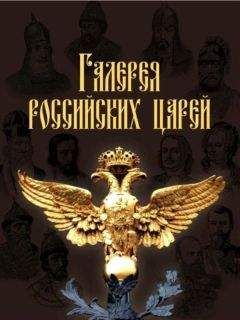Великая княгиня приняла христианство в Константинополе, она — первая христианка в княжеской семье. Ольга уговаривала и сына Святослава принять христианство, но тот отказался и продолжал жить в язычестве. Ольга завещала не совершать по ней тризну по языческому обряду, и после смерти в 969 году ее отпевал священник. Православная церковь княгиню Ольгу канонизировала, сделав ее первой Святой в княжеском роду.
Olga was a great Russian princess, a wife to Prince Igor. The first thing she did after coming to power was to avenge the death of her husband on the Drevlians. She burned down their capital town, killing most of the population, while on the rest of them a huge tribute was imposed.
Olga is referenced in the chronicles rather often, but the records are heavily obfuscated with legends, so that the historians are hardly able to tell the truth from the fiction. Olga was considered a wise ruler. She personally travelled all over Rus, divided the lands into townships, and established a certain amount of taxes for each town. She visited Byzantium several times, maintaining diplomatic relations with the empire.
The Grand Princess adopted Christianity in Constantinople, she was the first Christian in the princely family. Olga also tried to persuade her son Sviatoslav into becoming a Christian, but he refused and continued to live in Paganism. Olga’s will was not to arrange her funeral feast following the Pagan rite, and after her death in 969, her priest read the burial service.
The Orthodox Church beatified Princess Olga, making her the first saint in the princely kindred.
Святослав Sviatoslav 954(960)-972
Святослав воспитывался под надзором воеводы, он с детства мечтал о ратных подвигах. Возмужав, стал самостоятельно командовать дружиной, стремился сравняться боевыми заслугами со своим великим дедом, Вещим Олегом. До Святослава только одно славянское племя не было подчинено княжеству — вятичи. С них князь и начал свои походы.
В 967 году, стремясь получить контроль над придунайскими государствами, Святослав выступил союзником Византии против Болгарии. Поход принес победу, и Святослав сел княжить в болгарском Переяславце. А Киев остался без князя, с пожилой уже Ольгой и ее малолетними внуками. В 968 году печенеги воспользовались ситуацией и напали на город. С трудом киевляне отправили гонца к Святославу. Получив весть, князь вернулся, разбил неприятеля и восстановил мир в отечестве.
После смерти матери Святослав разделил княжение между сыновьями, а сам навсегда вернулся в Болгарию.
Хотел Святослав покорить и мощную Византию, но это предприятие не удалось, его дружина была разбита. Когда остатки ослабевшего войска возвращались из похода, на них напали печенеги. Как свидетельствует летописец, в схватке кочевники убили Святослава, и их предводитель велел сделать из черепа князя чашу.
Sviatoslav was brought up under the supervision of a warlord; his dream since the childhood was the feats of arms. On maturing, he became a war commander on his own, and sought to grade up to his glorious grandfather, Oleg the Seer, as of his military merits. Before the reign of Sviatoslav, Vyatichi was the only Slavonic tribe that was not the subject of the principality. The prince began his military campaigns with conquering them.
In 967, seeking to gain control over the countries of Danubian vicinity, Sviatoslav acted as an ally of Byzantium against Bulgaria. This campaign was successful, and Sviatoslav established his reign in a Bulgarian town Pereyaslavets, which meant that Kiev was left without a ruler, except for ageing Olga and her little grandchildren. In 968, the Pecheneg tribe took advantage of the situation and attacked the city. With great difficulty, the people of Kiev managed to send a messenger to Sviatoslav. The message made the prince return, he defeated the enemy and restored the peace in the homeland.
On the death of his mother, Sviatoslav divided the reign among his sons, and came back to Bulgaria for ever.
Sviatoslav wished to conquer the powerful Byzantine Empire, too, but this venture failed, his troops were defeated. When the remnant of the exhausted troops was on its way home from the war, they were attacked by the Pechenegs. As the chronicler quoted, Sviatoslav was killed by the nomads in this battle, and their chieftain ordered to make a drinking cup from the prince’s skull.
Владимир Vladimir 972-1015
Владимир — сын Святослава, не совсем равноправный брат старших Ярополка и Олега, так как был сыном ключницы Малуши, рабыни.
Владимир княжил в Новгороде до 977 года, когда между братьями разгорелась междоусобная война. Брат Олег в бою погиб, а Ярополк напал на Новгород и вынудил Владимира бежать из страны. В ответ Владимир в Швеции собрал варяжское войско и вернулся с ним на Русь. На этот раз удача оказалась на его стороне — Владимир захватил киевский престол и насильно женился на беременной вдове старшего брата. Были у него и другие жены и наложницы — современник писал, что Владимир являлся вторым Соломоном в женолюбии.
В 988 году князь принял крещение, освободил от супружеских обязанностей своих языческих жен, женился на византийской царевне Анне, стал строить церкви и распространять христианство и православную культуру по всей Руси, и с тех пор славился благочестием.
Князь, прозванный в народе «Красным Солнышком», не успел сделать распоряжений по передаче княжения, а сыновей он имел одиннадцать, поэтому после его смерти между детьми завязалась жестокая борьба за власть.
Vladimir was a son to Sviatoslav, but not quite at the equal terms with his older brothers Yaropolk and Oleg, as bom by housekeeper Malusha, a bondswoman.
Vladimir reigned in Novgorod until 977, when the war broke out among the brothers. Oleg was slain in the battle, while Yaropolk attacked Novgorod and forced Vladimir to flee from the country. In response, Vladimir recruited Varangian troops in Sweden and returned to Rus. This time, the luck was on his side, Vladimir seized the throne of Kiev, and compelled the pregnant widow of his killed brother into marriage with himself. He had also other wives and many concubines — a contemporary called him a second Solomon as of his lust after women.
In 988, the prince was baptized, freed his pagan wives from conjugal duties, and married a Byzantine princess Anna. He began to build churches and spread Christianity and Orthodox culture on the whole Rus, and was renowned for his piety ever since.
The prince, nicknamed among the people as «Fair Sun», did not manage to make orders on who was intended to inherit the reign, and since he had eleven sons, a fierce struggle for power struck up among his children after his death.
Ярослав Владимирович Yaroslav Vladimirovich 1015-1054
Ярослав Владимирович, прозванный в народе Мудрым, при жизни отца княжил сначала в Ростове, затем в Новгороде. Владея богатыми новгородскими землями, он решил выйти из-под власти отца, киевского князя Владимира. Болезнь, а затем и смерть, помешали великому князю усмирить непокорного сына. После кончины Владимира между братьями Ярославом и Святополком завязалась междоусобная борьба за киевский престол. Эта борьба с переменным успехом продолжалась четыре года — Святополк и Ярослав, опираясь то на поляков, то на печенегов, поочередно приходили к власти. В конце концов в одном из боев Святополк погиб, и Ярослав в 1019 году сел княжить в Киеве.
Победа не принесла покоя Ярославу — у него еще оставались братья, которые не претендовали на Киев, но пытались захватывать другие крупные города: Новгород, Псков, Чернигов, Полоцк. Так что почти вся жизнь Ярослава прошла в борьбе за власть, и только к 1036 году ему удалось добиться относительного внутреннего мира и заняться укреплением внешних границ.
Он боролся с остатками язычества, распространял грамотность, оставил потомкам «Русскую правду» — первый известный на Руси свод гражданских и уголовных законов. Скончался Ярослав в Киеве, завещав перед смертью пятерым своим сыновьям жить в мире и любви.
Yaroslav, whose nickname among the people was «The Wise», during the life of his father reigned first in Rostov, and then in Novgorod. Possessing the wealthy lands of Novgorod, he decided to get out of subordinacy to his father, Prince Vladimir of Kiev. Disease and then death prevented the Grand Prince from subdueing the rebellious son. On the death of Vladimir, the brothers Yaroslav and Sviatopolk began the internecine war for the throne of Kiev. This continued with alternating success for four years — both Yaroslav and Sviatopolk, making alliances now with the Poles, now with the Pechenegs, came to power one after another in turn. Finally, Sviatopolk was slain in a battle, and Yaroslav started to rule in Kiev in 1019.
The victory did not bring peace to Yaroslav — he still had brothers who, although without claiming for Kiev, tried to occupy the other key cities: Novgorod, Pskov, Chernigov, Polotsk. Therefore, almost the whole life of Yaroslav was spent in fighting for his primacy. He was able to achieve the civil peace only by 1036 and started the fortification of external borders.
He persecuted the leftovers of paganism, spread the literacy, and gave to the posterity «The Russian Truth» — a written code of civil and criminal laws, the first one known in Rus. Yaroslav died in Kiev, and on his deathbed, he instructed his five sons to live in peace and love.
Изяслав Ярославич Izyaslav Yaroslavich 1054-1078
Изяслав — сын Ярослава Мудрого, наследник киевского престола, вступивший на него после кончины отца. Ему должны были подчиняться младшие братья, княжившие в других городах. Первое время братья жили по наказу отца, в мире и согласии, беря в руки оружие только для того, чтобы защитить российские города от набегов внешних врагов. Но через несколько лет началась борьба с родственниками, княжившими в Полоцке, которых поддержали и местные жители. В результате Изяславу пришлось скрыться на время в Польше, где он заручился поддержкой польского короля и вернулся в Киев с войском. На несколько лет власть удалось вернуть, но тут взбунтовался княживший в Чернигове брат Святослав. Изяслав снова искал помощи у польского короля Болеслава, но тот ему отказал. Не помогли ни немецкий император Генрих IV, ни папа Григорий VII. Изяслав так и скитался «по заграницам» до тех пор, пока в 1076 году не скончался Святослав, и только тогда он занял причитающийся ему по праву киевский престол.
Снова города Руси были поделены между братьями, снова настал мир. Изяслав занялся внутренней политикой. Он отменил смертную казнь, вернул Константинополю право назначать киевских митрополитов.
Нарушил покой возмужавший сын Святослава Олег, решивший продолжить искания отца. 3 октября 1078 года дружины Изяслава и Олега Святославича сошлись в битве. В этом бою Изяслав Ярославич погиб.
Izyaslav was a son to Yaroslav the Wise, the heir to the throne of Kiev, who ascended it on the death of his father. The younger brothers, who ruled in other cities, were to obey to him. At first, the brothers adhered to the will of their father, living in peace and harmony and taking up the arms only to defend the Russian cities from the attacks of foreign enemies. However, several years after, a quarrel happened with the relatives who governed Polotsk and were supported by local residents. This resulted in Izyaslav’s escapement to Poland, where he ensured the backing of the Polish king and returned to Kiev with troops. He managed to regain his power for several years, but then his brother Sviatoslav of Chernigov revolted. Izyaslav sought help from the King Boleslaw of Poland again, but was denied. Neither the German Emperor Henry IV nor Pope Gregory VII would help. Izyaslav wandered the foreign countries as a refugee until Sviatoslav’s death in 1076, and only then he took his rightful due, the throne of Kiev.





